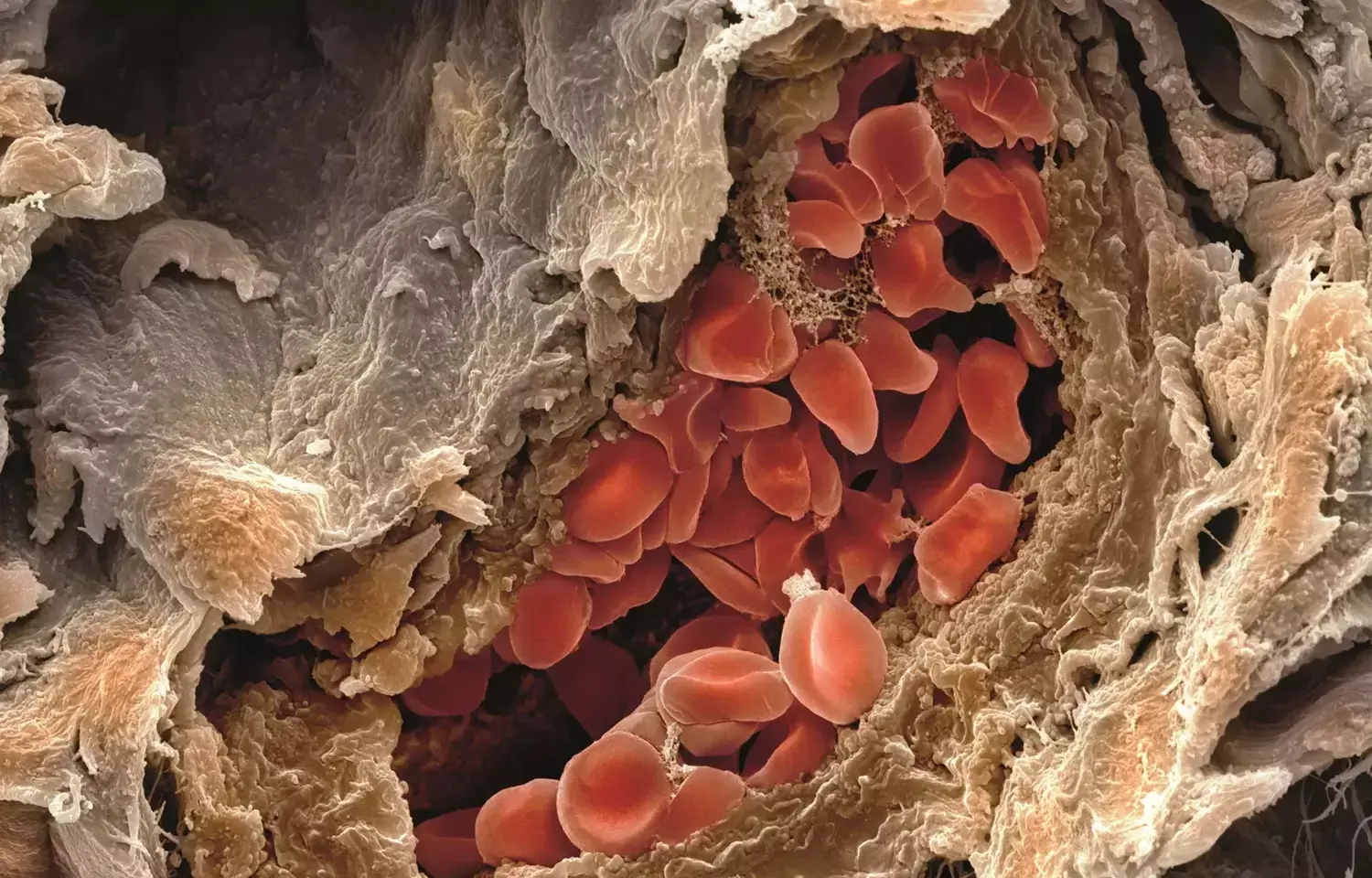- Home
- Medical news & Guidelines
- Anesthesiology
- Cardiology and CTVS
- Critical Care
- Dentistry
- Dermatology
- Diabetes and Endocrinology
- ENT
- Gastroenterology
- Medicine
- Nephrology
- Neurology
- Obstretics-Gynaecology
- Oncology
- Ophthalmology
- Orthopaedics
- Pediatrics-Neonatology
- Psychiatry
- Pulmonology
- Radiology
- Surgery
- Urology
- Laboratory Medicine
- Diet
- Nursing
- Paramedical
- Physiotherapy
- Health news
- Fact Check
- Bone Health Fact Check
- Brain Health Fact Check
- Cancer Related Fact Check
- Child Care Fact Check
- Dental and oral health fact check
- Diabetes and metabolic health fact check
- Diet and Nutrition Fact Check
- Eye and ENT Care Fact Check
- Fitness fact check
- Gut health fact check
- Heart health fact check
- Kidney health fact check
- Medical education fact check
- Men's health fact check
- Respiratory fact check
- Skin and hair care fact check
- Vaccine and Immunization fact check
- Women's health fact check
- AYUSH
- State News
- Andaman and Nicobar Islands
- Andhra Pradesh
- Arunachal Pradesh
- Assam
- Bihar
- Chandigarh
- Chattisgarh
- Dadra and Nagar Haveli
- Daman and Diu
- Delhi
- Goa
- Gujarat
- Haryana
- Himachal Pradesh
- Jammu & Kashmir
- Jharkhand
- Karnataka
- Kerala
- Ladakh
- Lakshadweep
- Madhya Pradesh
- Maharashtra
- Manipur
- Meghalaya
- Mizoram
- Nagaland
- Odisha
- Puducherry
- Punjab
- Rajasthan
- Sikkim
- Tamil Nadu
- Telangana
- Tripura
- Uttar Pradesh
- Uttrakhand
- West Bengal
- Medical Education
- Industry
Dalteparin bridging does not prevent arterial thromboembolism in AF patients: Study

Canada: A recent study found no benefit of postoperative dalteparin bridging for preventing major thromboembolism in patients with atrial fibrillation or mechanical heart valves who had warfarin interrupted for a procedure. The study findings are published in The BMJ.
Whether patients with atrial fibrillation or mechanical heart valves who require interruption of vitamin K antagonists for invasive procedures benefit from bridging with low molecular weight heparin (LMWH) after the procedure remains uncertain.
Previous studies have sought to address this common clinical problem, however, there has been concern that these patients are at high risk of thrombotic complications caused by a procoagulable state while off vitamin K antagonists, noted the authors.
Against the above background, Michael J Kovacs, Department of Medicine, Dalteparin Bridging Western University, London, ON, Canada, and colleagues aimed to determine the safety and efficacy of dalteparin postoperative bridging treatment versus placebo for patients with atrial fibrillation or mechanical heart valves when warfarin is temporarily interrupted for a planned procedure.
For this purpose, the researchers conducted a prospective, double-blind, randomized controlled trial. The trial included 1471 patients aged 18 years or older with atrial fibrillation or mechanical heart valves who required temporary interruption of warfarin for a procedure from 10 thrombosis research sites in Canada and India between February 2007 and March 2016.
The participants were randomly assigned to receive dalteparin (n=821; one patient withdrew consent immediately after randomization) or a placebo (n=650) after the procedure.
The main outcome measure was major thromboembolism (stroke, transient ischaemic attack, proximal deep vein thrombosis, pulmonary embolism, myocardial infarction, peripheral embolism, or vascular death) and major bleeding within 90 days of the procedure.
Key findings of the study include:
- The rate of major thromboembolism within 90 days was 1.2% (eight events in 650 patients) for placebo and 1.0% (eight events in 820 patients) for dalteparin.
- The rate of major bleeding was 2.0% (13 events in 650 patients) for placebo and 1.3% (11 events in 820 patients) for dalteparin.
- The results were consistent for the atrial fibrillation and mechanical heart valves groups.
"In patients with atrial fibrillation or mechanical heart valves who had warfarin interrupted for a procedure, no significant benefit was found for postoperative dalteparin bridging to prevent major thromboembolism," wrote the authors.
"Further studies are needed to determine the need for bridging before procedures in patients with mechanical heart valves," they concluded.
Reference:
The study titled, "Postoperative low molecular weight heparin bridging treatment for patients at high risk of arterial thromboembolism (PERIOP2): double blind randomised controlled trial," is published in The BMJ.
DOI: https://www.bmj.com/content/373/bmj.n1205
Dr Kamal Kant Kohli-MBBS, DTCD- a chest specialist with more than 30 years of practice and a flair for writing clinical articles, Dr Kamal Kant Kohli joined Medical Dialogues as a Chief Editor of Medical News. Besides writing articles, as an editor, he proofreads and verifies all the medical content published on Medical Dialogues including those coming from journals, studies,medical conferences,guidelines etc. Email: drkohli@medicaldialogues.in. Contact no. 011-43720751


